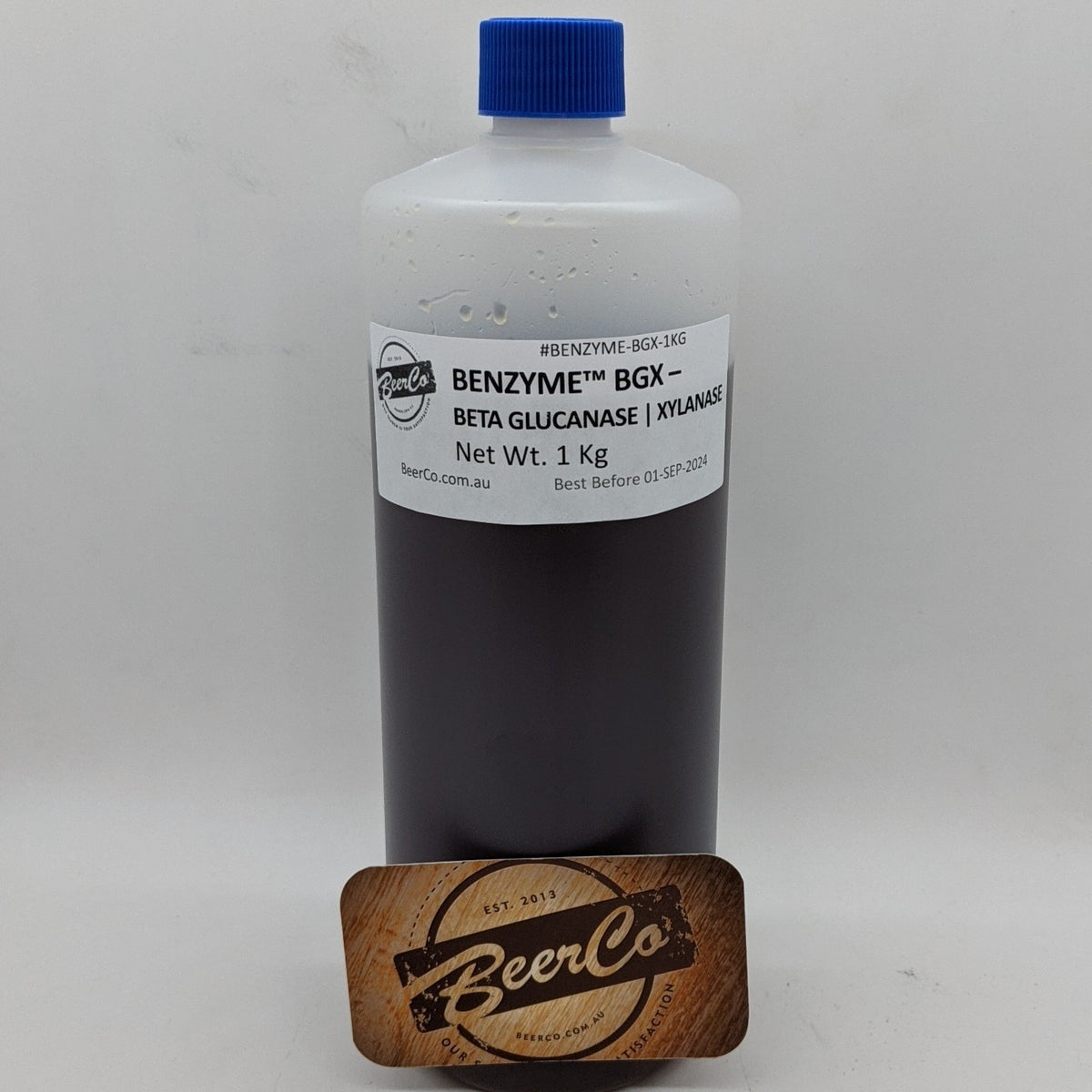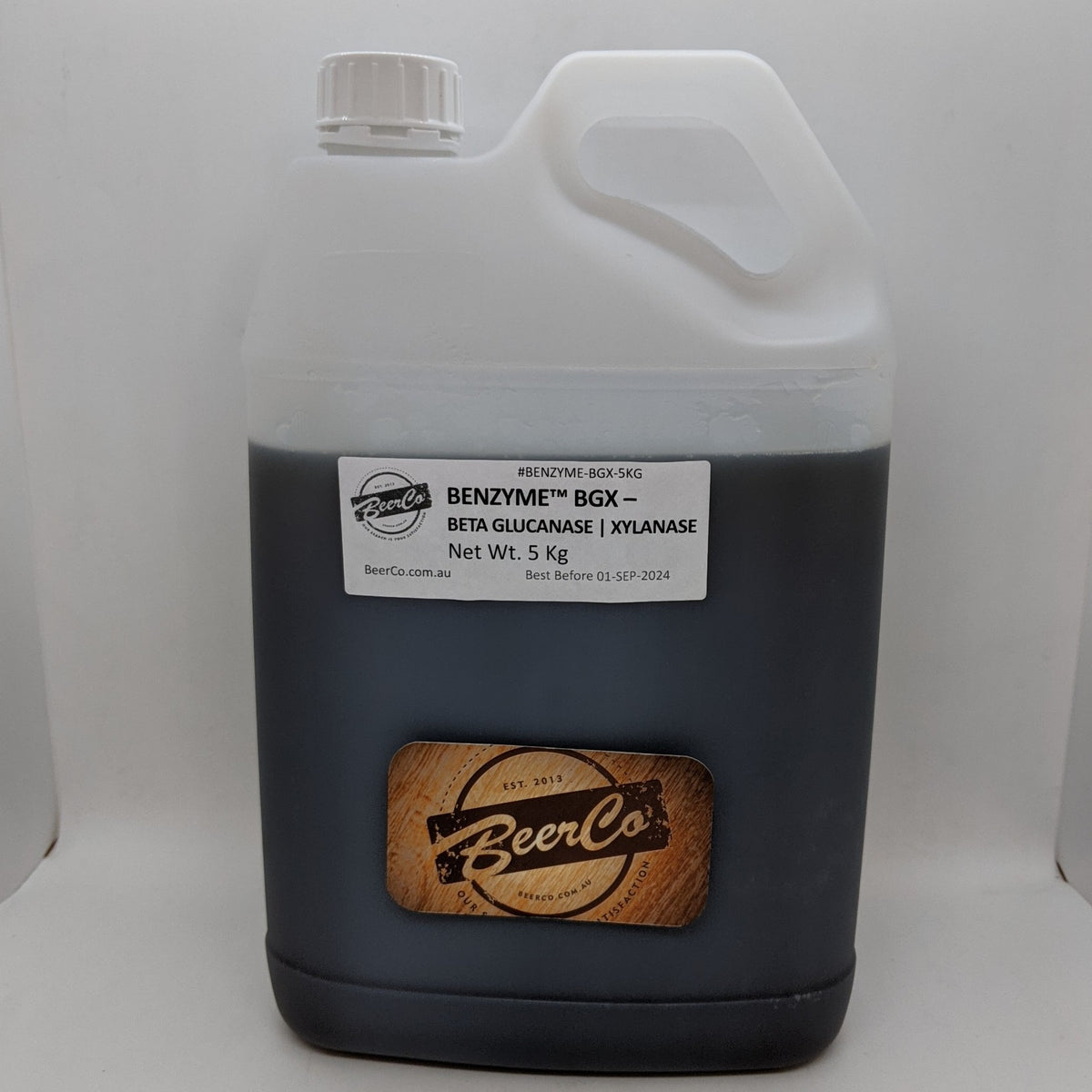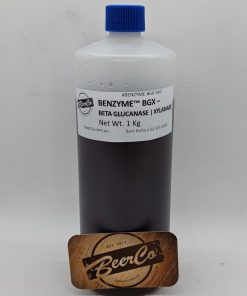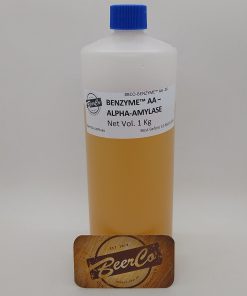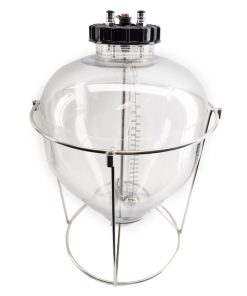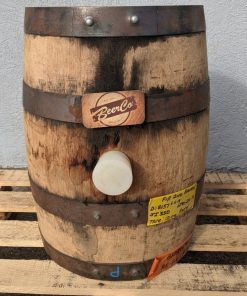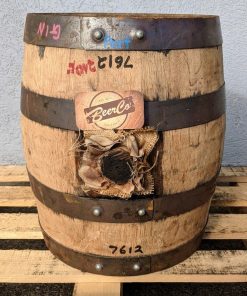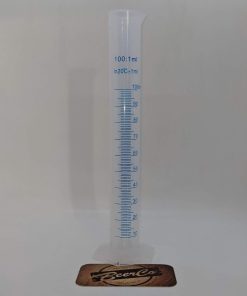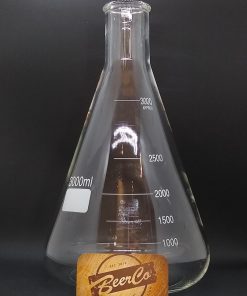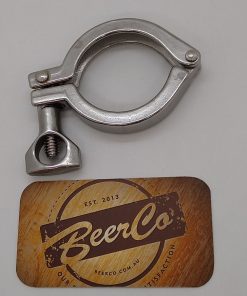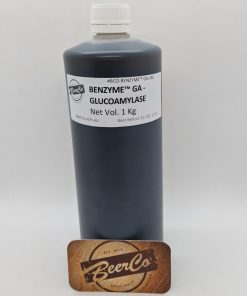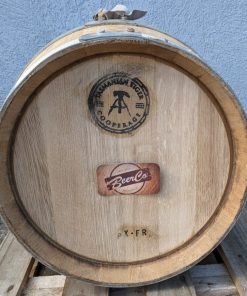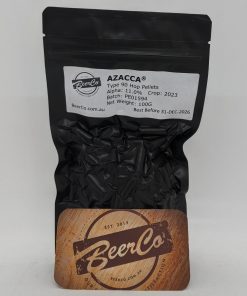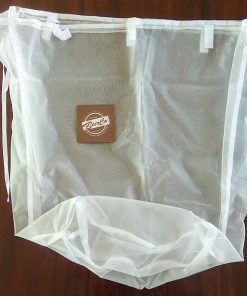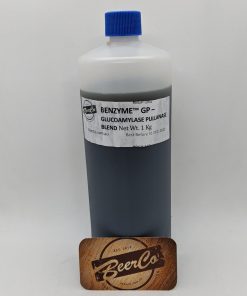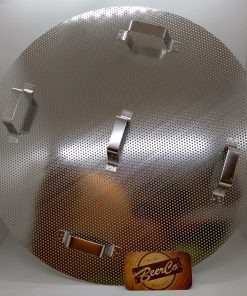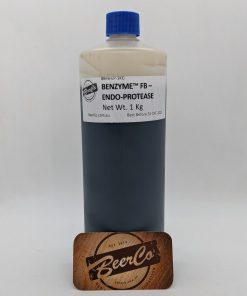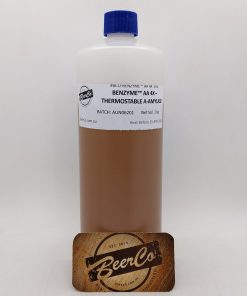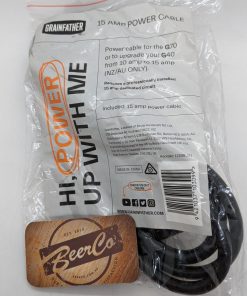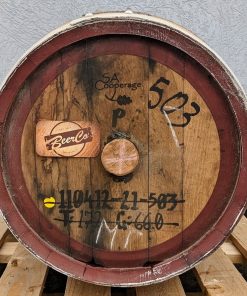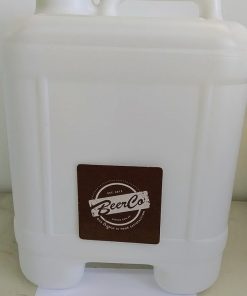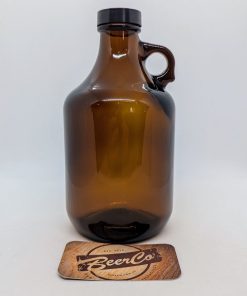Benzyme BGX | Beta Glucanase | Xylanase novozymes
$ 69,95 $ 34,98
Benzyme BGX is a high-performing blend of beta-glucanase and a GH-10 family arabinoxylanase. With Benzyme BGX, you can degrade both major cell wall components. The result is minimum viscosity and optimal wort separation and beer filtration.
Benzyme BGX is an advanced filtration enzyme. It performs significantly better than even the best-modified malt, especially for beer filtration. Only Benzyme BGX contains the GH-10 family xylanase. This is highly effective at breaking down arabinoxylans to non-viscous polysaccharides. The result is unmatched viscosity reduction. With Benzyme BGX, you can combine High and Very High Gravity Brewing with efficient mash filtration.
Pack Sizes:
- 1 Kg Bottle
- 5 Kg Bottle (SAVE 20% OFF 1L Price)
- 25 Kg Canister novozymes Ultraflo® Max
PRODUCT CHARACTERISTICS/PROPERTIES
Component name: Xylanase (endo-1,4-) Beta-glucanase (endo-1,3(4)-)
Activity: 250 FXU-S/g 700 EGU/g
Colour: Brown
Physical form: Liquid
Approximate density (g/ml): 1.18
Colour can vary from batch to batch. Colour intensity is not an indication of enzyme activity.
Key Benefits
Faster wort separation
Slow mash separation negatively affects the quality of the wort. That may lead to problems with beer filtering, flavor, and stability. This product delivers a thorough breakdown of beta-glucans and pentosans during mashing. The result is faster wort separation.
Increased brewhouse capacity
This product delivers consistent, fast and efficient wort separation. That allows you to maximize your number of brews per day.
Faster beer filtration
Beta-glucans and arabinoxylans create high wort viscosity. This slows down mash filtration. This product effectively breaks down glucans and arabinoxylans. The result is lower viscosity and faster beer filtration. That allows for high volumes of beer per filter run.
Increase extract yield
By effectively breaking down cell walls, this product allows greater access to the starch. That allows you to achieve higher extract yields.
Haze reduction in final beer
B-Glucan that hasn’t been broken down by enzymes can appear as haze in your final beer. This product breaks down beta-glucans to reduce haze formation.
How enzymes improve wort separation and beer filtration in brewing
Glucans and arabinoxylans absorb water, making the wort viscous and slowing filtration. They also stop enzymes from breaking down starch. That leads to lower yields and haze in the final beer. Filtration enzymes hydrolyze glucans and arabinoxylans to polysaccharides. The result is faster, more efficient separation and filtration.
The cell walls of barley and other cereal grains contain mixed-linked 1,3-1,4 β-glucans and arabinoxylans. These have a high molecular weight, which impacts the efficiency of separation and filtration.
The amounts and ratios of these molecules differ from grain to grain. Barley, oats and sorghum have more β-glucan molecules than xylan molecules. The ratio is more than two to one. Wheat and rye have the opposite ratio, with more than twice as much xylan as β-glucan.
β-glucans and arabinoxylans are very hygroscopic; they absorb water. That makes the wort very viscous and dramatically reduces mash filtration speed. When they absorb water, β-glucans and arabinoxylans also become greasy. That makes them stick to other grain components and to filter aids and membranes. They can also stick to starch molecules, making starch less available for enzymatic degradation. That can lead to lower brewhouse yields and haze in the final beer.
Filtration enzymes hydrolyze mixed-linked 1,3-1,4 β-glucans and arabinoxylans to polysaccharides. Unlike malt enzymes, thermostable filtration enzymes can withstand high temperatures. That means they stay active during the entire mashing. The result is faster, more efficient wort separation and beer filtration.
Performance
The use of Benzyme BGX as a filtration enzyme makes it possible to combine High Gravity Brewing and Very High Gravity Brewing with efficient mash filtration, as demonstrated in figure 2.

At lower gravity, the difference in mash separation performance between the two enzymes is less pronounced, but for beer filtration, Benzyme BGX is always superior. This can be seen in figure 3.

The low wort and beer viscosity results in a significantly slower differential pressure increase across the filter over time, producing more filtered beer per filter run and minimizing beer loss. Compared with no enzyme use, beer filtration cycles can be reduced by up to 50%. Compared with filtration enzymes including the family GH-10 xylanase, beer filtration is improved by up to 25–30%. Benzyme BGX effectively breaks down cell walls, which allows for higher extract yields in the order of 0.5 to 2.0%, depending on the quality of raw materials.
Standard filtration enzyme vs. Benzyme BGX
Benzyme BGX was evaluated against a standard β-glucanase in a trial series of 30 brews. The trials were carried out in a brewery using 12 MT moderately modified malt per brew. Dosages were 1.8 kg of Benzyme BGX versus 2.5 kg of standard β-glucanase per brew. The average trial data is summarized in the table below.
Significant improvements in brew house performance and beer filtration were observed when using Benzyme BGX. This is shown in table 1. Total beer volume per filtration cycle went from 3,800 hl to 4,900 hl, resulting in kieselguhr savings of 15%.

Usage and dosage
Benzyme BGX products are added to the mash tun during mash-in, starting when around one-third of the grist has been loaded into the mash tun.
Benzyme BGX products 0.100–0.25 kg/ton of grist, but depends deeply on malt quality, adjunct ration and type of raw material.
More dosage information can be found in the “Brewing Handbook”.
Optimum pH and temperature
The optimal working conditions for the Ultraflo® series is 45–70/75°C and a pH of 4.0–6.5.
The figures below show the influence of temperature and pH on Benzyme BGX performance under brewing conditions.
Figures 4 and 5 show the influence of temperature and pH on Ultraflo® performance

More information about these products is available in the Novozymes Brewers Handbook.
Safety, handling and storage
Recommended storage: 0-10 °C (32-50 °F)
Safety, handling and storage guidelines are provided with all products.
| Size | 1 Kg, 5 Kg |
|---|
Fast shipping and professional packing
We offer a wide range of shipping options due to our long-running partnerships with UPS, FedEx and DHL. Our warehouse staff are highly trained and will package your items according to our precise and precise specifications. Before shipping, all goods are thoroughly inspected and securely secured. Every day we ship hundreds of packages to our customers from all over the world. This is a sign of our commitment to be the largest online retailer worldwide. The warehouses are located situated in Europe as much as they are in USA.
Note: Orders containing multiple items will have a different processing period for each item.
Before shipping the items, our staff will carry out an extensive inspection of the products you have ordered. The majority of orders are delivered within 48 hrs. The delivery time should be between 3-7 working days.
Returns
We don't manage the stock in our factory and warehouse. Actual stock levels may fluctuate at any moment. Be aware that it's possible that your order will be out of stock after you have placed the order.
Our policy is for 30 days. Unfortunately, if 30 days have passed from the date you purchased the product, we are unable to offer you a return or exchange.
The item must not be used, and it must be in the original packaging. It must also be in the original packaging.
Related products
Brewing Aids
Equipment
Equipment
Equipment
Brewing Aids
Brewing Aids
Equipment
Brewing Aids
Equipment
